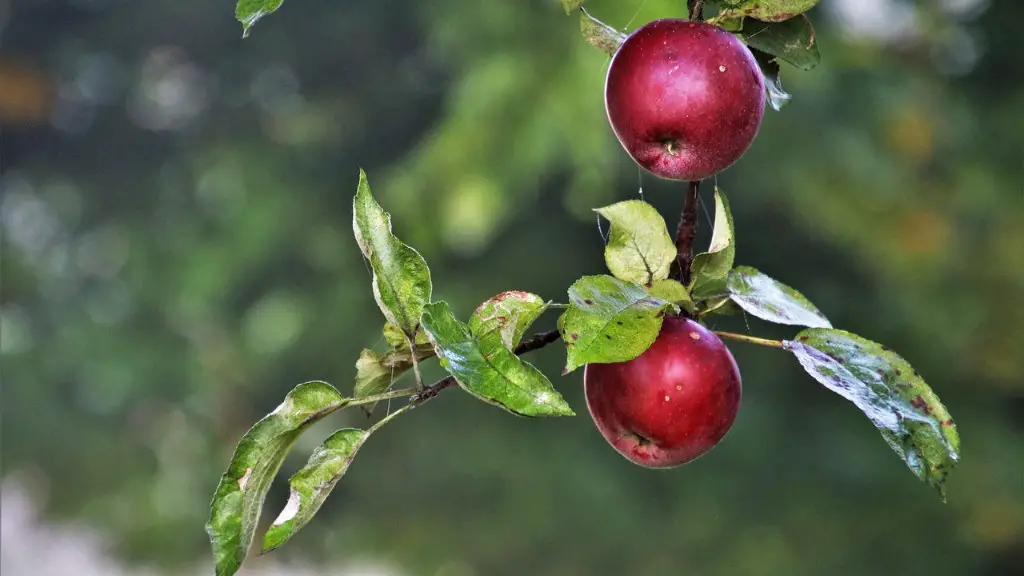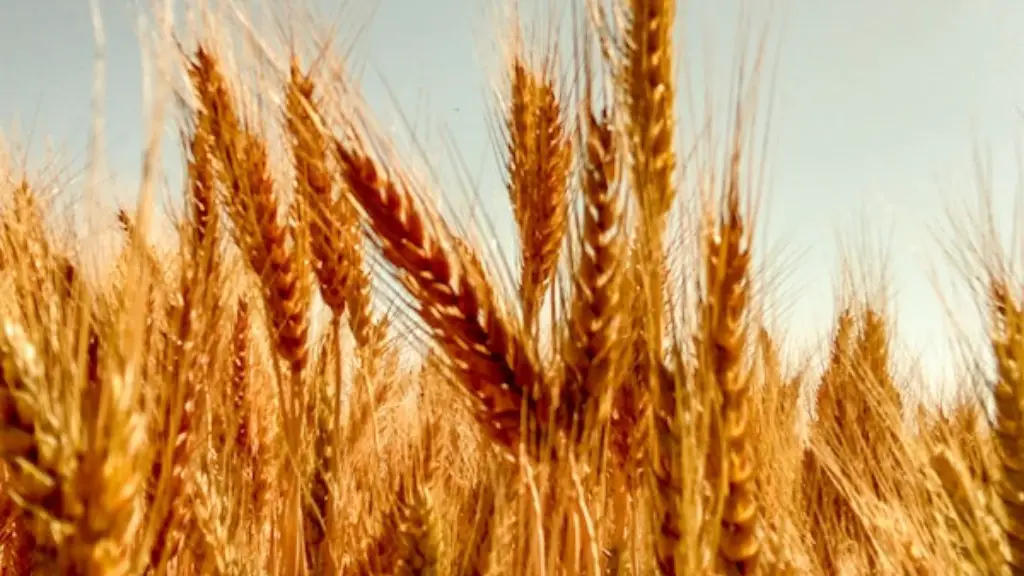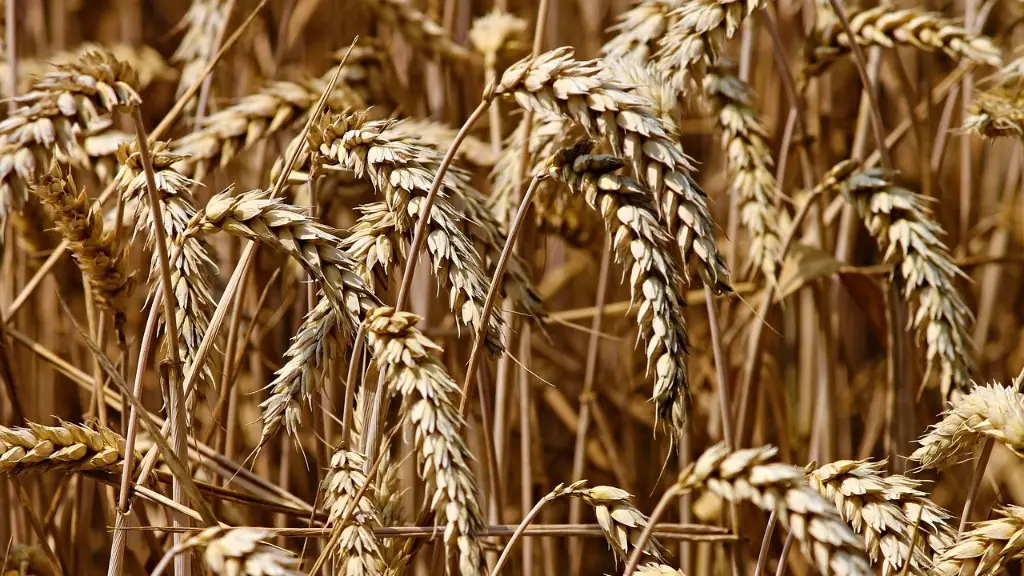The agriculture field is full of opportunities for those who are looking for a career change or are just starting out in the workforce. There are many different types of jobs available in agriculture, from working on a farm to being a scientist in a laboratory. No matter what your interests or skills are, there is likely a job in agriculture that is a perfect fit for you.
Some common jobs in the agriculture field are farmers, ranchers, agricultural engineers, agricultural scientists, and agricultural inspectors.
What kind of job is considered to be in the field of agriculture?
Agricultural workers are responsible for operating farm machinery and maintaining crops and livestock. They perform physical labor and operate machinery under the supervision of farmers, ranchers, and other agricultural managers. Agricultural workers typically have a high school diploma or equivalent, although some jobs may require postsecondary education or training.
The agricultural industry employs a variety of workers, from farm workers and growers to grain elevator operators and agricultural equipment technicians. There are also many opportunities for sales and management positions in the agricultural industry.
What are the 8 major career areas in agriculture
The Agricultural Production farming and ranching industry comprises establishments primarily engaged in growing crops, raising animals, or both. This industry also includes establishments engaged in activities such as producing plants for landscape purposes, producing animals for show, and producing animals for the collection of their products (e.g., eggs, wool, and honey).
The Agricultural Processing and Products industry comprises establishments primarily engaged in one or more of the following: (1) processing raw materials produced in agricultural production (except fish and forestry); (2) converting these agricultural raw materials into food, feed, or other edible products; and (3) manufacturing animal feeds from processed food and feed ingredients.
The Agricultural Mechanics and Technology industry comprises establishments primarily engaged in manufacturing agricultural machinery, equipment, and parts. This industry also includes establishments engaged in manufacturing irrigation systems, and establishing and developing agricultural land for farming purposes.
The Ornamental Horticulture industry comprises establishments primarily engaged in growing flowers, plants, shrubs, and trees for landscape purposes. This industry also includes establishments engaged in growing plants for the cut-flower market, and producing bulbs, seeds, and nursery stock for planting purposes.
The Forestry industry comprises establishments primarily engaged in growing and harvesting timber and in manufacturing wood products.
The
There are a variety of high-paying jobs in agriculture, from agricultural engineers and agronomists to veterinarians and farm managers. Agricultural sales representatives can also earn a good salary.
What are the 7 career pathways in agriculture?
The career pathways in agriculture are many and varied. There are seven main pathways, each with its own focus and area of expertise. They are: Agribusiness Systems, Animal Systems, Environmental Service Systems, Food Products & Processing Systems, Natural Resources Systems, Plant Systems, and Power, Structural & Technical Systems. Each of these pathways offers something different and can lead to a rewarding career in the agricultural industry.
Agricultural degrees at the baccalaureate level prepare students for careers in the agricultural industry. These degrees provide students with the knowledge and skills necessary to work in the agricultural sector. The best agricultural degrees at the baccalaureate level include agroecology, food systems, environmental sciences/studies, biological sciences, international development, animal science, nutrition & food sciences, and dietetics, nutrition, and food sciences, among others.
What are the 10 most in demand positions in agriculture?
There are many different careers in agriculture, and each one offers its own unique set of challenges and rewards. Agricultural engineers work to design and improve agricultural systems and equipment. Agricultural economists research and analyze the economic impact of agriculture on society. Farm managers oversee the daily operations of farms and Agricultural salespeople sell Agricultural products. Soil and plant scientists study the composition and structure of soils and the effects of plants on the environment. Conservation planners develop plans to protect and restore natural resources. Commercial horticulturalists grow and sell plants for landscaping and other purposes.
Different types of farms serve different purposes. Some farmers use traditional methods while others use more modern approaches. The type of farm you choose should be based on your specific needs and goals.
Aquaculture farms are perfect for those who want to raise fish. Cooperative farms are great for farmers who want to work together. Hay farms are perfect for those who want to raise livestock. Organic farms are perfect for those who want to avoid chemicals.
Urban farms are perfect for those who want to grow food in the city. Nomadic farms are great for those who want to move around. Sedentary farms are perfect for those who want to stay in one place. Intensive farms are perfect for those who want to maximize production.
What are the fastest growing careers in agriculture
There is a huge demand for careers in the agriculture, food, and natural resources industries. The fastest growing careers in this field include animal caretakers, pest control workers, refuse and recyclable collectors, and agricultural equipment operators. With the world population ever-increasing, there is a need for more food production and distribution, and these careers are in high demand.
1. Pastoral farming refers to the raising of livestock on pasture land.
2. Arable farming is the growing of crops on land that is suitable for cultivation.
3. Shifting agriculture is a type of farming in which plots of land are cleared and cultivated for a few years before being abandoned and allowed to revert to forests or scrub.
4. Mixed farming is a type of farming that combines both arable and pastoral farming.
5. Nomadic agriculture is a type of farming in which people move their livestock from place to place in order to find new grazing land.
6. Sedentary agriculture is a type of farming in which people live in one place and cultivate the land around them.
7. Subsistence farming is a type of farming in which farmers grow enough food to feed themselves and their families, but do not produce any surplus.
8. Commercial agriculture is a type of farming that is geared towards producing crops or livestock for sale.
9. Aquaculture is a type of agriculture that focuses on the cultivation of aquatic plants and animals.
10. Horticulture is a type of agriculture that deals with the cultivation of fruits, vegetables, and flowers.
11.
What are 4 needed skills in agriculture?
Agricultural workers are responsible for a variety of tasks on the farm, from planting and harvesting crops to operating machinery and caring for animals. They need to be able to work long hours in often difficult conditions, and must be dexterous, physically strong and mechanically skilled. Good listening skills are also important, as agricultural workers need to be able to take direction from their supervisors and work well with others.
There are many branches of agriculture, each with its own focus and area of expertise. Some of the main branches of agriculture include agronomy, horticulture, plant breeding and genetics, seed science, crop physiology, plant pathology, plant protection, and soil science. Each branch of agriculture has its own unique set of knowledge and skills that are used to improve crops and Agricultural production.
Is it hard to get a job in agriculture
If you’re interested in a career in agriculture, there are a few things to keep in mind. First, the industry is constantly changing and evolving, so it’s important to stay up-to-date on the latest trends. Second, there are many different types of agriculture, so it’s important to find the area that interests you the most. And finally, there are a lot of great opportunities out there, so don’t be afraid to explore all your options!
BSc Agriculture is not a tough course, rather it is a course that requires focus and dedication. The key to success in this field is to have a clear understanding of the concepts and a good grip on the practical aspects of the course.
How do I start a career in agriculture?
There are a few things to consider when deciding whether to graduate college or complete the courses in crop science or biology. Firstly, look for cooperative positions and work your way up to a manager position. In high school, take agriculture classes and gain experience working with crops. Secondly, graduate high school and choose a college that suits your needs.
Agronomists play an important role in helping farmers and other agricultural businesses to manage their crops effectively. They may work as consultants to provide advice on seed, fertilizer, and pesticide use, or they may be employed directly by banks, farm co-ops, or crop management companies. Agronomists may also work as forecasters, analysts, or teachers.
To become an agronomist, you will need to have an interest in science and a bachelor’s degree.
How many careers are there in agriculture
This is fascinating! It’s no wonder that California is such a popular state – there are so many opportunities for work in the food and agriculture industry! Texas and Florida are also both large states with a lot of people, so it makes sense that they would have a lot of food and agriculture jobs as well.
Crop production (arable farming) includes growing of the following branches of agriculture: livestock production, crop production, agricultural economics, agricultural engineering. A variety of factors such as climate, soil, topography, and water supply play a role in determining the type of crops that can be grown in an area.
Conclusion
Some common agriculture jobs include farmers, ranchers, agricultural scientists, agricultural engineers, agricultural inspectors, and agricultural economists.
There are many different types of jobs in the agriculture field, from farmers and ranchers to agricultural scientists and agribusiness managers. each of these careers plays an important role in producing the food we eat and the other products we depend on.





